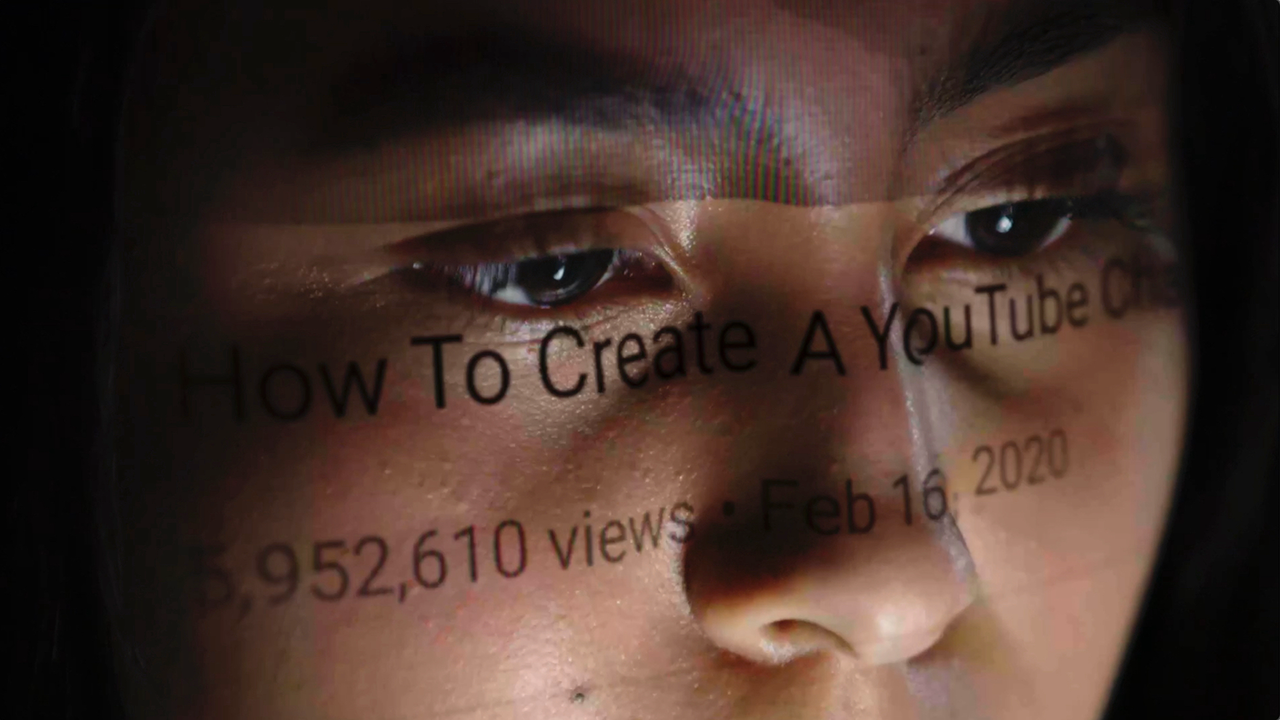|
Review by Cole Groth
It's hard to discuss Alex Winter's latest documentary without discussing the modern political sphere we live in. Opening up immediately to a series of nostalgic YouTube videos such as Charlie Bit My Finger and old Smosh's Pokémon parody, The YouTube Effect seems to promise a film diving into the history of YouTube and its effect on modern society. However, throughout the 92-minute runtime, Winter chases after so many different avenues that it sometimes feels very unsatisfying. The fascinating journey he takes us on ultimately seems better suited as a miniseries than a simple documentary.
The story of YouTube is incredibly intriguing because the rise of this massive force in our society has so many interesting turns. Winter can very effectively take us on a trip down memory lane as he chooses some of the most important videos in the last two decades to represent how we've changed as a society. Tackling this website's impact on the history of the internet is a daunting task, and he manages to adequately encapsulate how it all started. However, this foundation doesn't quite hold up as the story progresses. When deciding on which of YouTube's effects to focus on, Winter chose three: YouTube's predatory monetization practices, the global community it has created, and the role it plays in fostering alt-right growth. With each branch, the documentary's structure becomes more tenuous, and by the end, it's hard to see exactly how YouTube relates to events like January 6th and PizzaGate. It seems like Winter wanted to make two separate films about YouTube and the post-2016 political landscape, but halfway through, he decided to combine the two. Some of the wild political conspiracies took shape on websites besides YouTube and thus don't seem fit for this film. His overabundance of interviews with two different YouTubers, ContraPoints and Anthony Padilla, makes the production seem amateur in many ways. With so many millions of people involved on the website, it's surprising that Winter could only get interviews with ten people. The presentation of the documentary is sleek and fascinating, but it's odd to see characters like Padilla dominate the screen for a staggering 15% of the runtime. One of the things I appreciated most about The YouTube Effect was how it made a genuine attempt, and mostly succeeded, at separating itself from the hundreds of other documentaries that, rather ironically, can be found by the millions of YouTube creators. There are so many moments that could've gone down the fear-mongering dark web route that most documentaries take, but Winter instead takes a mostly sophisticated look at how YouTube has gamed its viewers to create the multi-billion dollar behemoth it currently is. When investigating how YouTube's predatory advertising is dangerous for children, it is an effective portrait of how the algorithm is, unfortunately, able to be gamed and how quality content has been pushed to the side in favor of clickbait. This is by far the most effective avenue Winter takes, with the other two getting increasingly weaker.
The aforementioned second route analyzes how YouTube can be a force for good, demonstrating how it can connect people from backgrounds that don't find themselves typically represented and allow them to find their own community on the website. This is a pretty easy angle to approach, but Winter only interviews one or two people that speak up about this, so it seems like a wasted opportunity. It's quite a shame that he decides to focus so much energy on the third route: how YouTube unwittingly fosters the growth of the alt-right.
The biggest reason I have a problem with the film's approach to the modern political scale is that it loses focus on what the film is about. Starting with an interview with a man who says he "escaped the alt-right rabbit hole," this section of the documentary delves into how commentators on YouTube can bring people into the dark light, but I wholeheartedly dislike the angle that Winter takes. What starts first as a cautionary tale of how dangerous language can lead to events such as the tragic Christchurch mosque shooting turns into a nauseating and preachy segment about how YouTube should be used to censor creators more often. I felt like I was being beaten over the head with this messaging that more people should be kicked off for using the platform in controversial ways. I especially dislike how he portrays the events of January 6th in this film because he doesn't even try to connect YouTube with it. He shows how the event happened and how the video was used to communicate what was happening but fails to show that YouTube was responsible even in a small part. It feels like Winter wanted to show us his views on Trump's presidency and the alt-right, but he doesn't show it effectively enough in the documentary to make it seem he cared about YouTube's impact on these events. It's cool to see a film that focuses entirely on YouTube, but Alex Winter's approach to it is so wildly unfocused that it ultimately feels rather unsatisfying as a watch. It'd be much more appropriate if it took a clear focus on one of its effects rather than all of these different impacts that it's had on us as a social media platform. For many people interested in the story of YouTube, its controversial effects, and how it continues to grow, The YouTube Effect only makes it apparent that the abundance of content on YouTube would tackle these topics better than the film itself. The YouTube Effect is currently seeking distribution. Rating: 2.5/5
0 Comments
Leave a Reply. |
Archives
July 2024
Authors
All
|
|
|
disappointment media
Dedicated to unique and diverse perspectives on cinema! |


